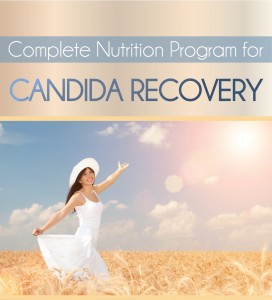Coffee is not just a cup of caffeine. It is a complex drink with hundreds of different compounds in it. We know that insulin resistance and inflammation are the foundation of most chronic diseases, and coffee contributes to both of those health concerns. If you’re still addicted to that morning coffee, here are 8 things to consider that may change your mind.
1. ADRENAL HEALTH: While a cup of coffee consumed infrequently may not be problem for most people, the constant consumption of coffee taxes your adrenal glands by pumping you full of adrenaline. As the adrenaline wears off, cortisol slowly builds up. When this cycle is continually repeated, cortisol builds up and creates the same effects as chronic stress.
2. LOWERS INSULIN SENSITIVITY: Coffee lowers your sensitivity to insulin, and creates higher blood sugar levels. These high blood sugar levels eventually lead to arterial deterioration and increased risk of cardiovascular disease.
3. ADDICTIVE: Coffee also stimulates the brain to produce dopamine, a neurotransmitter. Dopamine elevates our mood and can make us feel better, which is part the reason that coffee is hard to quit for many people.
4. INFLAMMATION AND AUTOIMMUNE RESPONSE: Coffee triggers the same inflammation and autoimmune response as gluten containing foods. Coffee is acidic, leaches minerals from bones, causes excess stress hormones to be released, all which increase inflammation.
5. TOXIC BREW: Coffee contains more than 700 volatile substances, including a combination of alcohols, aromatic compounds, carbonyl compounds, esters, hydrocarbons, heterocyclic compounds, and terpenoids. If you are not drinking organic, it contains a lot of pesticide residues and other contaminants such as nitrosamines, solvents, and mycotoxins. Some of which are carcinogenic.
6. LOSS OF NUTRIENTS: Coffee drinking causes loss of thiamin and other B vitamins, calcium, minerals, sodium, chloride, potassium, magnesium, and zinc, and studies have shown that a single cup of coffee can reduce iron absorption from a meal by as much as 75%.
7.. INCREASE IN LDL (bad) CHOLESTEROL: Coffee contains a substance called cafestol that is a potent stimulator of LDL cholesterol levels.
8. INCREASED RISK OF HEART DISEASE: Chlorogenic acid in coffee increase homocysteine levels, an indicator for increased risk of cardiovascular disease
Here are my top 5 tips for breaking the habit:
1. Coffee greatly depletes the body of magnesium. Considered the “master mineral”, magnesium supplementation neutralizes the adrenalin surges cause by caffeine, which will help with anxiety and insomnia that sometimes result from caffeine withdrawal.
Start taking magnesium citrate powder about 2 weeks before you are going to be weaned off of coffee. After 2 weeks, drink green tea (continue taking the magnesium). Also consider using herbal teas like Tulsi or Yerba Mate, great replacement teas that do not stress your adrenals. (~note: avoid magnesium oxide, as only 4 percent will be absorbed and the remainder will be a powerful laxative.)
2. Drink lots of green juices. This is amazingly effective in the majority of people. Green juices alkalize your blood, and if you begin your day with 24-32 ounces of green juice before eating anything, eventually you will not even want coffee.
3. Consider natural amino acid supplements. Ask your health care practitioner if naturally sourced amino acid supplements like DL-phenylalanine (DLPA) will work for you. It is a natural dopamine precursor, and many people find it extremely effective for breaking the addiction when taking 500mg once in the morning, and once in the afternoon.
4. Take hot baths with Epsom salts which will help detoxify coffee metabolites through your skin. You may smell coffee in your sweat.
5. If when coming off of the coffee you have withdrawal symptoms of irritability or headaches (you shouldn’t with DLPA) take homeopathic Chamomilla 12X (one dose, 4 times a day) if your health care practitioner gives you the green light!
**Always check with your health care practitioner before starting any supplement program.
For More Information:
Moisey LL, Kacker S, Bickerton AC, Robinson LE, Graham TE. 2008. “Caffeinated coffee consumption impairs blood glucose homeostasis in response to high and low glycemic index meals in healthy men.” Am J Clin Nutr 87 (5): 1254-1261
Lane JD, Feinglos MN, Surwit, RS. 2008. “Caffeine Increases Ambulatory Glucose and Postprandial Responses in Coffee Drinkers With Type 2 Diabetes.” Diabetes Care. 31(2): 221-222










